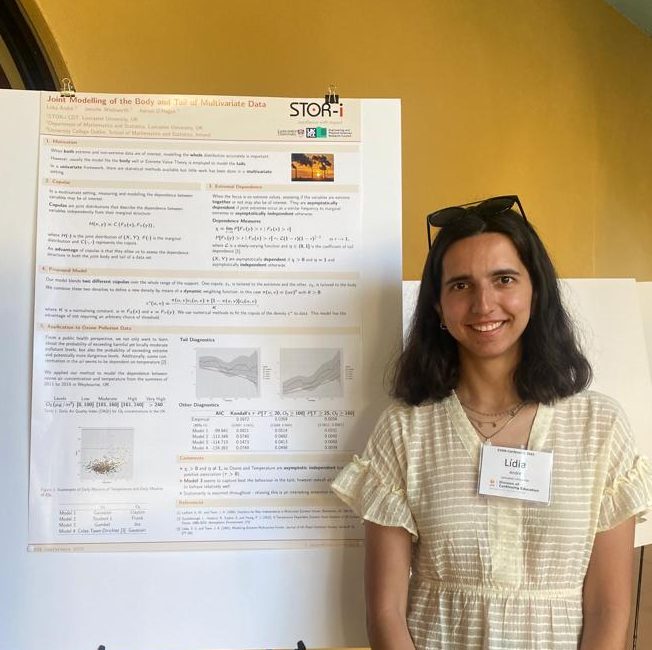Supervisors: Jennifer Wadsworth (Lancaster University), Adrian O’Hagan (University College of Dublin)
In order to capture the behaviour of the data and to predict future observations, we aim to fit the best statistical model possible to the entire data set. However, these models often don’t capture correctly the behaviour of extreme events, which in situations such as floods or financial losses are important. In such situations, we often apply extreme value methods; these aim to capture the stochastic behaviour of a process at extremely large (or small) values. A drawback of these methods is that non extreme events may now be disregarded and poorly fitted.
When the data available just concerns one variable, say we are interested in modelling heat waves, there are available methods in the literature that aim to accurately model extreme events (represented by the tail of the distribution) and non-extreme events (represented by the body of the distribution). However, the same does not happen when we have more than one variable. Such situations may be when modelling the dependence between liabilities and the interest lies on understanding the exposure to risk if, for example, a hurricane occurs and damages properties. It is of importance to model accurately this type of extreme event while still correctly modelling the dependence in the rest of the data set.
Since sparse work has been done concerning this last scenario, my PhD project aims to fill the gap in the literature by investigating and developing dependence models which allow the tails to be considered as well as accurately modelling the body of the data: we aim to investigate the use of copulas, clustering techniques, among other strategies throughout the initial stages of the PhD
Conferences and Workshops
Before STOR-i
Publications List
Before STOR-i
- Conference paper: Spatial Modelling of Black Scabbardfish Fishery Off the Portuguese Coast
- Paper based on my MSc dissertation: Modelling Dependence Between Observed and Simulated Wind Speed Data Using Copulas

